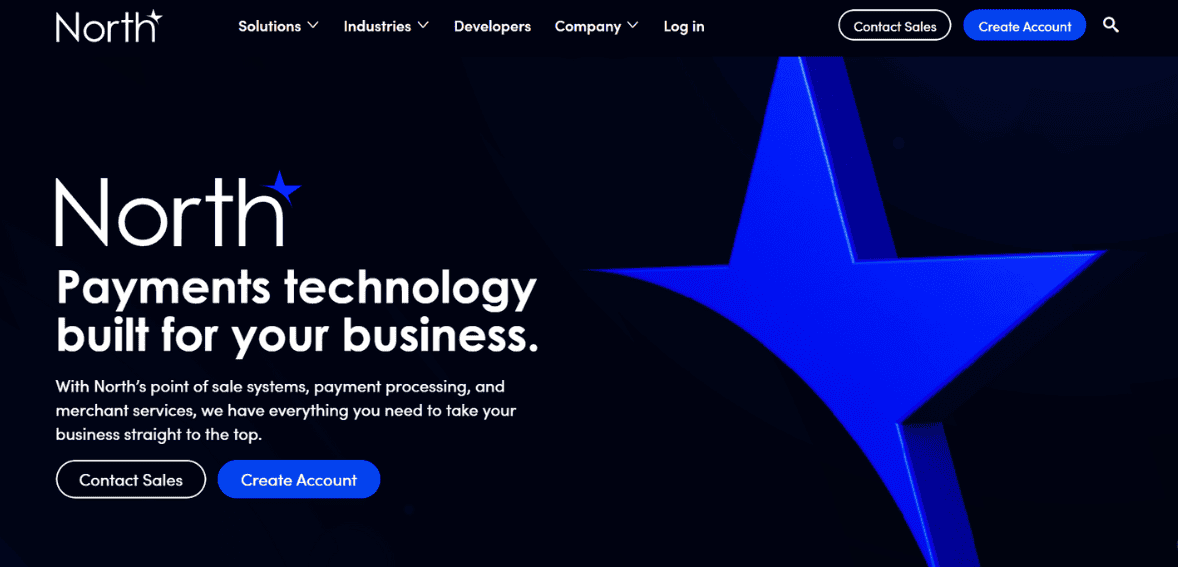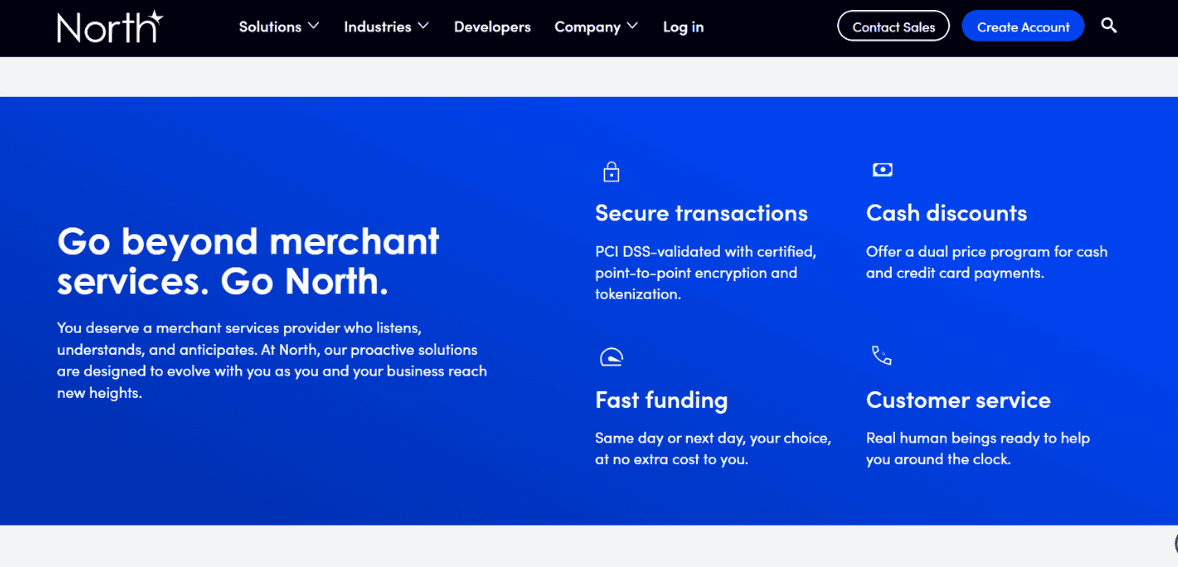North American Bancard Review

North American Bancard (NAB) has steadily grown from a regional merchant services provider to one of the more recognizable names in U.S. payment processing. Established in 1992 and headquartered in Troy, Michigan, the company now supports hundreds of thousands of merchants across retail, food service, healthcare, and professional sectors. Over three decades of expansion have allowed NAB to position itself as a comprehensive provider, capable of supporting everything from neighborhood coffee shops to multi-location enterprises.
What distinguishes NAB is its ability to combine the stability of traditional merchant account services with a willingness to adopt newer, digital-first tools. This adaptability has kept it competitive in an industry that demands innovation in order to keep pace with changing consumer payment behaviors. Lets read more about North American Bancard Review.
The company’s market presence benefits greatly from its distribution partnerships, agent network, and white-label collaborations. Through these channels, NAB has built significant reach in both small business and enterprise-level accounts. At the same time, its reputation has not been without challenges. Some merchants appreciate the scalability of its services, while others have voiced concerns over transparency of fees or customer support.
These mixed reviews reflect a broader trend across the payments industry, where providers must balance advanced technology with fair pricing and service commitments. NAB’s longevity demonstrates that it has found a workable balance for many merchants, though it is not universally the best fit. Understanding both the strengths and limitations of NAB is essential for businesses evaluating whether it meets their operational needs.
Core Payment Processing Services | North American Bancard Review
At the foundation of NAB’s offerings is its payment processing service, which enables businesses to accept major credit and debit cards, ACH transfers, and electronic checks. This breadth of acceptance allows companies to serve customers in physical stores, through mobile channels, or online environments. The processing is built for speed and reliability, which are crucial for businesses that cannot afford downtime during peak hours. Whether a merchant operates a high-volume retail store or a small professional service with periodic invoices, NAB’s infrastructure is designed to scale to the volume without major disruptions.
Another valuable feature is its support for recurring billing and subscription models. Service-based industries, membership organizations, or SaaS providers benefit from automated payments that reduce administrative overhead while ensuring consistent cash flow. NAB also supports electronic benefit transfer (EBT) acceptance, which is vital for grocery and convenience store operators. Tools like batch settlement and flexible payment acceptance methods provide merchants with a degree of customization that helps streamline their daily operations.
Despite these advantages, businesses must carefully evaluate the costs of processing with NAB. The company employs multiple pricing structures, which can lead to complexity in understanding the true cost of transactions. While interchange-plus pricing may provide more transparency, tiered pricing could obscure expenses depending on card types and transaction volumes. Ultimately, NAB’s core processing services are comprehensive, but the value proposition depends on how well a merchant navigates its fee structures and contract conditions. For many, the benefits of reliable processing outweigh the complications, but others may find competitors offer simpler options.
Point-of-Sale (POS) Solutions
NAB enhances its merchant services portfolio through a partnership with Payanywhere, which powers its range of POS solutions. These systems are not limited to card acceptance but extend to comprehensive business management. Options include countertop terminals, portable handheld readers, and full-featured POS stations suitable for restaurants and retailers. These solutions integrate both hardware and software, allowing merchants to process payments, manage inventory, track employee performance, and generate sales reports within a unified environment.
For small businesses, entry-level handheld readers provide an affordable path to digital payments. Larger businesses can deploy multi-station setups that handle multiple registers, order management, and customer relationship features. All devices are equipped with EMV chip and NFC contactless compatibility, ensuring compliance with modern security standards. The systems are cloud-based, enabling merchants to monitor sales and generate reports in real time from anywhere. This scalability is one of NAB’s greatest strengths, as it allows businesses to expand POS functionality as they grow rather than overcommitting upfront.
Nevertheless, there are drawbacks worth considering. Some merchants report that ongoing updates and equipment leases can increase long-term costs. Hardware rental contracts, in particular, can lock businesses into commitments that are less flexible than buying equipment outright. While the functionality of NAB’s POS portfolio is strong, potential users should review pricing and contract terms carefully. When implemented thoughtfully, however, NAB’s POS solutions give merchants the ability to modernize operations, improve efficiency, and deliver smoother checkout experiences to customers.

Mobile and Contactless Payments
As consumer behavior shifts toward digital-first payment methods, NAB has kept pace with mobile and contactless technologies. Through dedicated apps and mobile card readers, merchants can accept payments directly on smartphones and tablets. This makes NAB especially relevant for businesses on the move, such as food trucks, contractors, event vendors, or delivery services. Contactless capabilities extend to popular wallets like Apple Pay, Google Pay, and Samsung Pay, giving customers the flexibility to use their preferred methods.
QR code acceptance is another feature that caters to modern retail and dining trends. These solutions reduce friction at checkout, speed up transaction times, and increase customer satisfaction. NAB’s mobile systems also include basic reporting tools so that merchants can track sales without having to invest in separate software. This blend of convenience and functionality makes mobile payments attractive for businesses prioritizing agility and customer convenience.
However, the benefits come with caveats. Processing fees for mobile or contactless payments may vary based on the card network or wallet provider. Additionally, merchants operating in areas with limited internet connectivity may face disruptions in service. Hardware compatibility can also be a limiting factor, especially for older devices. Despite these limitations, NAB’s mobile solutions remain competitive within the industry. They provide merchants with a viable way to keep up with evolving customer preferences, provided that the associated costs and technical requirements align with the business model.
E-Commerce and Online Payment Gateways
For merchants selling online, NAB offers a secure payment gateway that integrates with websites and e-commerce platforms. This solution supports acceptance of credit and debit cards, digital wallets, and recurring billing. The gateway’s strength lies in its flexibility—businesses can integrate via APIs for custom solutions or connect with popular platforms such as Shopify, WooCommerce, and Magento. This dual approach allows both tech-savvy developers and small business owners to benefit.
Security is a key focus, with features like tokenization and fraud prevention tools built into the gateway. These protect sensitive cardholder information and reduce the risks of chargebacks. Automated billing is another advantage for subscription-based businesses, streamlining customer retention while ensuring consistent revenue streams. Customizable checkout pages further improve customer experience, giving businesses the opportunity to align payment flows with their branding.
On the other hand, NAB’s gateway is not always as intuitive as leading providers like Stripe or PayPal. Some users report a steeper learning curve, and integration may require additional technical expertise or third-party support. Costs associated with setup or advanced configurations can also add up, depending on the complexity of the merchant’s online environment. Nonetheless, NAB’s online gateway represents a solid choice for businesses seeking security, flexibility, and scalability in their e-commerce operations. It offers a strong alternative to standalone third-party processors, particularly for merchants already using NAB’s in-person systems.
Security, Compliance, and Fraud Prevention
Handling sensitive customer data makes security a critical part of any payment processor’s responsibility, and NAB emphasizes its commitment to compliance. The company maintains full PCI DSS compliance, which ensures merchants are aligned with industry standards for protecting payment data. Encryption and tokenization safeguard cardholder information during transmission and storage, reducing the risk of data breaches.
Fraud prevention is another area of focus. NAB provides merchants with monitoring tools that can detect unusual transaction patterns and flag potentially fraudulent activity. These features are particularly important for businesses operating in industries with higher fraud risk or those handling large transaction volumes. Real-time monitoring, role-based access controls, and secure login protocols further enhance the overall safety of merchant accounts.
Despite these protections, merchants must still take proactive measures to ensure best practices. Some fraud prevention tools may involve extra costs, and compliance processes can be complex without guidance. Smaller businesses may find the requirements overwhelming, especially if they lack in-house technical expertise. Still, NAB’s emphasis on data security and regulatory compliance positions it as a trustworthy partner in a market where customer trust hinges on safe transaction handling. For businesses that prioritize data protection, NAB offers the necessary safeguards to meet industry expectations.
Pricing and Fee Structure
Pricing is one of the most scrutinized aspects of NAB’s services. The company offers both interchange-plus and tiered pricing, each with its own advantages and disadvantages. Interchange-plus is generally favored for transparency, as it passes card network rates to merchants with a fixed markup. Tiered pricing, while simpler on the surface, groups transactions into categories that may not always align with a business’s needs, sometimes resulting in higher effective rates.
NAB also charges additional fees for services like chargeback handling, PCI compliance, and monthly account maintenance. Early termination fees are another factor, especially for merchants who enter into long-term agreements but later decide to switch providers. Equipment leasing can further complicate the cost equation, with recurring payments that may outweigh the price of outright hardware purchases.
The biggest challenge merchants face is clarity. Many report difficulty understanding their monthly statements or encountering unexpected fees. This lack of upfront transparency can frustrate smaller businesses that operate on tight budgets. On the positive side, NAB’s flexibility in pricing models allows businesses to negotiate terms that fit their circumstances, though this requires diligence. Overall, NAB’s pricing is competitive in the industry but not always the most straightforward. Businesses must conduct careful reviews of contracts and request detailed fee breakdowns before committing.
Merchant Account Features
Merchant accounts form the backbone of NAB’s services. The setup process involves underwriting, where the company reviews business type, transaction volume, and perceived risk. Once approved, the account provides businesses with the ability to accept card payments and manage settlement. NAB’s accounts can be tailored for recurring billing, subscription services, high-volume retail, or specialized acceptance such as EBT. This versatility is attractive to businesses across sectors.
Approval times vary, with low-risk businesses often experiencing faster onboarding, while high-risk industries may face delays or restrictions. NAB is open to working with certain high-risk businesses, but acceptance is subject to strict underwriting guidelines. Account features include reporting dashboards, settlement management, and access to support for account-related issues. These tools ensure merchants have visibility into their financial flows and can manage operations more effectively.
Contractual terms are where merchants need to exercise caution. Reserve requirements may be imposed on businesses with higher risk profiles, and early termination fees can apply. While these practices are standard across the industry, they can present obstacles for businesses seeking flexibility. Ultimately, NAB’s merchant account services provide the infrastructure necessary for reliable payment acceptance, though the obligations tied to contracts require careful consideration.
Reporting, Analytics, and Business Insights
Access to data is increasingly important in business decision-making, and NAB provides merchants with reporting and analytics capabilities through its dashboards and portals. These systems offer real-time transaction tracking, customizable sales reports, and multi-location overviews. For small and medium-sized businesses, these insights can help identify sales trends, monitor employee performance, and optimize inventory management.
The reports balance simplicity with functionality. High-level summaries allow owners to gauge performance quickly, while detailed transaction breakdowns provide deeper insights when needed. Customization options give businesses the ability to tailor reports to their unique metrics, whether daily sales totals or customer purchasing habits. Multi-location reporting is particularly valuable for enterprises that want centralized visibility across outlets.
However, NAB’s analytics tools may not reach the depth of specialized business intelligence platforms. Advanced forecasting, predictive modeling, or integration with external analytics systems may require additional investment. Still, for many businesses, NAB’s reporting tools strike a useful balance by offering actionable insights without overwhelming users with complexity. For merchants seeking accessible, data-driven decision-making, these features provide meaningful support in day-to-day management.

Customer Support and Service Experience
Customer support is often a decisive factor in merchant satisfaction, and NAB’s service receives mixed feedback. The company provides support via 24/7 phone lines, email, and online resources, which is valuable for businesses operating outside standard hours. Self-service materials, FAQs, and documentation supplement live assistance, offering merchants multiple avenues for troubleshooting.
Positive feedback often highlights responsive staff and effective resolutions for technical issues. However, some merchants report frustration with long wait times, inconsistent responses, or challenges in resolving billing disputes. Such variability is common in the payment processing industry, but it emphasizes the importance of setting realistic expectations. The complexity of billing and contractual issues may require multiple follow-ups before resolution, which can strain smaller businesses without dedicated administrative staff.
NAB’s broad support network is an asset, but consistency is an area for improvement. Businesses evaluating NAB should consider customer service as part of their decision-making, recognizing that experiences can vary widely. Ultimately, NAB’s support framework is comprehensive in structure, though outcomes depend on execution. For businesses where round-the-clock availability is critical, the presence of 24/7 support remains a reassuring feature.
Integrations and Third-Party Compatibility
Modern businesses rely on seamless software integration, and NAB recognizes this need by offering compatibility with numerous third-party platforms. Merchants can integrate NAB’s systems with accounting tools like QuickBooks, e-commerce platforms such as WooCommerce and Shopify, and CRM applications. API access extends customization capabilities, giving developers the freedom to create specialized connections tailored to unique workflows.
The ability to unify payment data with accounting and customer management systems reduces manual entry and improves operational efficiency. For larger businesses with complex setups, these integrations streamline reporting and ensure smoother coordination across departments. NAB’s integrations are particularly beneficial for businesses that rely on multi-channel sales, as they enable centralized management of transactions and customer data.
However, technical expertise may be required to fully implement certain integrations. Some merchants may find that setup costs or third-party developer involvement add to overall expenses. Additionally, while NAB offers broad compatibility, not every integration is as seamless as plug-and-play alternatives from certain competitors. Still, the overall breadth of supported systems enhances NAB’s appeal as a versatile processor capable of fitting into diverse business ecosystems.
Advantages of Choosing NAB
The appeal of North American Bancard lies in its versatility and comprehensive service offering. Merchants gain access to solutions that cover in-person, mobile, and online transactions, providing a one-stop shop for payment acceptance. Scalability ensures that businesses can expand features as they grow, without needing to switch providers. Security and compliance measures, including PCI DSS adherence and fraud prevention tools, give merchants confidence in handling sensitive data.
NAB’s mobile and contactless payment capabilities also make it future-ready, aligning with growing consumer preferences for speed and convenience. Reporting tools support informed decision-making, while third-party integrations expand operational efficiency. Around-the-clock support availability adds another layer of reassurance for businesses that require assistance at any time.
In short, NAB’s primary advantages are its breadth of services, scalability, and commitment to security. Businesses seeking an all-in-one processor with flexible options will likely find NAB attractive, provided they are comfortable navigating its pricing and contractual frameworks.
Limitations and Considerations
Despite its many strengths, NAB comes with limitations that businesses must weigh carefully. Pricing transparency is a recurring concern, with some merchants reporting confusion over statements or encountering hidden fees. Contractual commitments, such as early termination fees and equipment leases, can also present challenges for businesses that need flexibility.
Customer support, though broadly available, can vary in quality. Inconsistent experiences with billing or technical issues may undermine confidence for some merchants. Additionally, while NAB’s tools are functional, they may lack the polish or advanced analytics of competitors specializing in specific niches. Businesses requiring intuitive systems or deep forecasting capabilities may find NAB’s offerings insufficient.
These considerations are not unique to NAB but are common across the industry. However, they underscore the importance of thorough due diligence before committing. By reviewing contracts carefully, clarifying fee structures, and assessing support expectations, businesses can better determine whether NAB is the right fit for their payment needs.
Who Should Use NAB?
North American Bancard is best suited for businesses seeking a versatile, scalable payment processor that covers multiple transaction channels. Small businesses can benefit from entry-level POS and mobile solutions, while larger enterprises can leverage multi-location reporting and integrations. Industries like retail, dining, healthcare, and professional services gain from its security features and broad acceptance capabilities.
Businesses with recurring billing models or subscription services may find NAB particularly valuable, given its invoicing and automated payment features. Those prioritizing customer convenience will also appreciate its support for contactless and mobile wallets. However, NAB may not be the ideal fit for merchants seeking ultra-transparent pricing or minimal contractual obligations. High-risk businesses should also confirm eligibility before applying, as acceptance varies by industry type.
Overall, NAB is a strong choice for businesses that value breadth and flexibility. For merchants willing to scrutinize contracts and manage pricing structures carefully, NAB can serve as a reliable long-term partner.
Conclusion
North American Bancard has established itself as a significant force in U.S. payment processing, offering a wide spectrum of services from basic merchant accounts to advanced POS, mobile, and e-commerce solutions. Its strengths lie in versatility, scalability, and security, making it appealing to businesses across many industries. At the same time, challenges around pricing transparency, contract commitments, and support consistency should not be overlooked. NAB is not universally the best fit, but for businesses that prioritize flexibility and are willing to conduct thorough reviews, it can provide a comprehensive and effective solution. The decision ultimately comes down to whether the balance of features, costs, and contractual terms aligns with a merchant’s operational goals.
FAQs
Q1. Is North American Bancard suitable for small businesses?
Yes, NAB offers entry-level POS, mobile, and merchant account solutions that suit small businesses. However, it is important to carefully review contracts and pricing details to ensure affordability. Some fees or terms may be less favorable for very small operations.
Q2. Does North American Bancard support high-risk industries?
NAB does extend services to some high-risk businesses, but approval depends on underwriting guidelines. Not all industries will qualify, so companies in high-risk sectors should confirm eligibility before applying.
Q3. How does NAB ensure secure transactions?
NAB maintains PCI DSS compliance and incorporates encryption, tokenization, and fraud monitoring into its systems. These measures safeguard sensitive payment data and reduce fraud risks, though merchants should also implement best practices in their operations.





